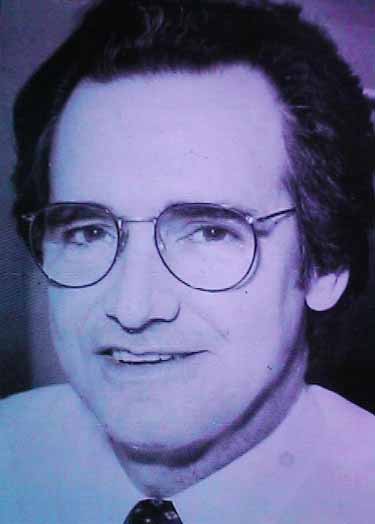Manuel de Dios Unanue

"We know any murder is a heinous crime.
But when the victim is murdered because he reported on the truth,
we are all the victims here."
Mary Jo White
U.S. District Attorney for the Eastern District of New York

On March 11, 1992, anti-crime crusader and former editor of the Spanish-language El Diario-La Prensa newspaper Manuel de Dios Unanue sat at the bar of the Menson Asturias restaurant in the Jackson Heights area of the Queens borough of New York City. Suddenly, a man walked into the restaurant and upon taking a good look at Unanue spun around and exited the restaurant. He returned, however, only a few moments later wearing a hood over his head and accompanied by another man. The masked man quickly walked up to Unanue at the bar and without saying a word shot him twice in the head with a 9-millimeter handgun. Unanue fell to the floor of the restaurant and died almost instantly. He left behind a wife and a two-year-old daughter.
In March, 1994, a Colombian assassin was convicted of the murder and sentenced to life in prison without the possibility of parole. Testimony at the trial revealed that the killing had been ordered by Colombian drug lord JosÚ Santacruz Londono, who had purportedly put out a $20,000 contract on the journalist. The reason? Unanue had the temerity to write articles and books as well as publish photographs of top narcotics traffickers and their street level operators and money launderers in Queens. American authorities aggressively investigated and prosecuted Unanue's killers as if it involved the murder of a police officer. Explained Queens District Attorney Richard A. Brown, "The same tactics repeatedly used by Colombian cocaine traffickers in South America to silence their critics were used here and that is something we will not tolerate." According to New York Mayor David N. Dinkins, "This [conviction] will serve as a reminder to those who would seek to silence our society's crusaders, to murder the illuminators of our society's dark places and to undermine one of our fundamental national rights should know we will never rest in pursuing them."
De Dios had a long history of aggressively reporting on themes which earned him dangerous enemies. For example, after reporting on the pro-independence Puerto Rican FALN and anti-Castro Omega 7 terrorist groups a bomb exploded in the El Diario-La Prensa newspaper offices which exploded in the lobby hurting no one. De Dios merely remarked to Newsday about the incident, "That is when my name started being recognized." From the very beginning de Dios was committed to writing and he never let himself be intimidated. "When I was a child in Battista's Cuba, I got together with some friends and put on a newspaper that we made by typing out sheets of paper and making carbon copies," de Dios explained. "We did that until Castro took over. When I lived in Spain under Franco, I was also a writer. No one will ever be able to tell me that I can't write."
There is nothing more central to the classical Western democratic tradition than the free exchange of information and expression of ideas. And in a liberal democracy, this freedom is safeguarded not only by the laws and courts but by the thoughts and convictions of the citizenry - you and I. Journalists, activists, politicians, artists - whomever - that communicate their ideas, thoughts, or beliefs in the public milieu deserve our protection and respect when threatened; it is in the liberal dissemination of information and in the heart-felt convictions of the people (you and I) that a democracy derives (or fails to derive) its considerable strength. Let us not forget de Dios or his assassination - nor the people behind it or the reasons why it was ordered. In this manner, even in death Unanue and his life's argument rise to victory over JosÚ Santacruz Londono and others of his ilk.
And Ye shall know the Truth,
And the Truth shall set you free!
St. John the Gospel
![]()
